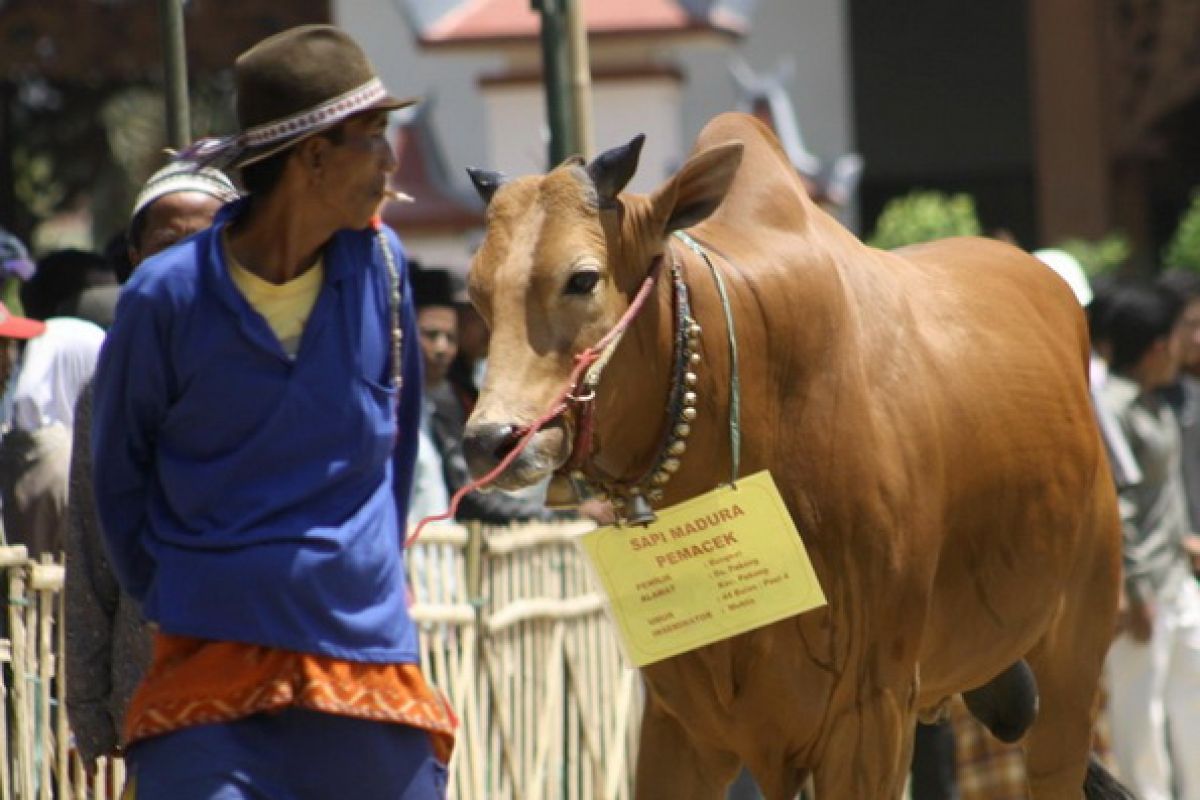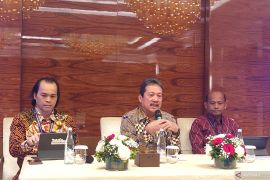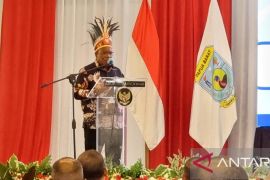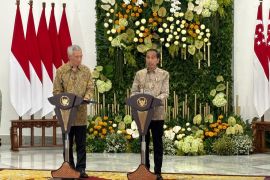According to the plan, cattle breeders will receive Rp500,000 to Rp750,000 for each head of cow which is at least five months pregnant. The incentives will also be used to buy productive cows which are to be sold to slaughter houses.
The incentives are also part of the government`s efforts to raise cattle population as the country is gearing up for self-sufficiency in cow and buffalo meat in 2014.
Director General of Husbandry and Animal Health at the Agriculture Ministry Prabowo Respatiyo Caturoso said on Thursday (June 17) at least 200 thousand productive cows must not fall into the hands of abattoirs.
The move will target provinces which have a high rate of slaughtered cows. Hence, to ensure that the effort could be well conducted there must be support from regional governments particularly to achieve self-sufficiency in cow and buffalo meat in 2014, he said.
"In addition, support from other stakeholders is also badly needed because without their support we will find it hard to achieve self-sufficiency in meat in 2014," he said.
Chairman of the Indonesian Cattle Breeders Association (PPSKI) Teguh Boediyana said last Wednesday (June 8) he was worried that the number of slaughtered cows would increase after Australia decided to suspend all live cattle to Indonesia over alleged abusive treatment of livestock in the country.
He said Australia`s decision to suspend the export of 500 thousand live cattle to Indonesia would at least force the equal number of domestic cattle to be slaughtered. "Local cattle will be able to meet needs but that is not the case with long-term needs as the population of local cattle will decline," he said.
Thus, he did not rule out the possibility that the number of slaughtered productive cows would increase so that it would put a further strain on the attainment of self-sufficiency in cattle meat.
He said the agriculture minister should review the existing policy and make a new strategy to anticipate the impact of Australia`s decision to suspend live cattle exports to Indonesia.
The suspension would create a chance for cattle importers to turn to local cattle, but the country should not merely rely on domestic cattle to meet beef demands because this would reduce the supply of domestic cattle, he said.
Data show Indonesia now has a cattle population of 11.86 million with an annual growth rate of 1-4 percent in the past 10 years. Meanwhile, cattle meat production currently stands at 352,400 tons, well below consumption which grew 9.5 percent over the same period.
Chairman of the Indonesian Association of Animal Farm Scientists Prof. Dr. Ir. Muladno, MSA said recently local cattle currently contributed nearly 50 percent, imported live cattle 25 percent and frozen beef 25 percent of the national cattle meat production.
"In light of that, we can predict if cattle imports are suddenly stopped, national cattle production will be disrupted," he said.
Actually, the domestic cattle production was still far from expectation although the government claimed that local cattle had been able to meet 70 percent of national cattle meat production. But in reality the country could only meet 50 percent of the production on its own based on the results of animal farm scientists` calculation, he said.
He said Australia`s suspension of live cattle exports to Indonesia would raise frozen beef imports to 50 percent from 25 percent of the country`s cattle meat production. "This means that many cattle breeders will go bankrupt particularly cattle finishing businesses and in turn many people employed in the sector will lose jobs," he said.
Almost 200 productive cows would be slaughtered everyday because the sale value of cows was lower than that of bulls. On the other hand, many bulls would be slaughtered during the Muslim day of sacrifice of Idul Adha, he said.
The Australian government decided on June 8 to suspend all cattle exports to Indonesia for six months following an outcry over alleged abusive treatment of livestock in the country. Australia said the suspension would remain until Indonesia establishes new regulations to protect livestock from mistreatment.
Australia exports about 500,000 cattle a year to Indonesia, accounting for 60 per cent of its livestock trade.
To anticipate the impact of the suspension, the government held a meeting with representatives of New Zealand, Canada and Brazil on June 15 to explore the possibility of importing cattle from those countries.
But Head of the Agricultural Quarantine Body at the Agriculture Ministry Banun Harpini said Indonesia could not import live cattle from Brazil because Law No. 18 of 2009 on husbandry and animal health stipulated that Indonesia could only import cattle from foot and mouth disease (FMD)-free countries.
At the meeting, New Zealand offered to export beef because the country did not export live cattle according to its policy. Meanwhile, Canada offered to export young cattle to Indonesia to increase the country`s cattle population, he said.
Boediyana said the main reason why Indonesia still could not achieve self-sufficiency in cattle meat was the fact that meat demand grew at a faster pace than cattle production.
The other factor was that the Agriculture Ministry had no accurate data on cattle population and other data related to self-sufficiency in cattle meat in 2014.
"As a result what has been set in the blue print cannot be achieved," he said.
(Uu.S012/H-NG)
Reporter: by Suharto
Editor: Priyambodo RH
Copyright © ANTARA 2011












